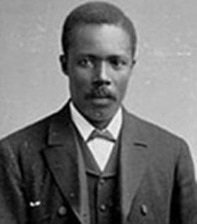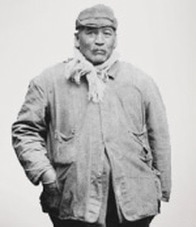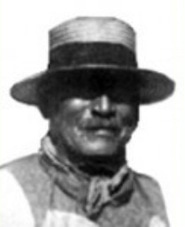The Legend of George Crum
The legend reads something like this – During a hot and balmy 1853 summer afternoon, George Crum, a chef at Cary Moon’s Lake Lodge Restaurant in Saratoga Springs, New York, was a bit hot and bothered.
A fussy diner sent a dish of French Fried Potatoes back to the kitchen for being sliced too thickly – more than once, allegedly. Crum was having a bad day. He sliced the next batch so thinly that “the fork could not skewer them” and seasoned them far too heavily.
Ta da.
Rather than expressing further dissatisfaction, the diner was apparently overjoyed, and ordered more. No-one knows who was responsible, it could have been Crum’s wife or sister, but nevertheless this is the generally accepted origin of what we now call the Chip or Crisp.
The popularity of the paper thin chip proved so popular with diners that soon, other restaurants in the area started serving them and George Crum even went on to open a Restaurant, with Chips as the specialty.
Legends are often born through repeating stories until they become fact. George Crum was born George Speck, but obviously great chefs all had nom-de-plumes. Actually, it was said to be his father's professional jockey name, which he took when he was in work, but never mind that unverifiable oddity...
The fussy customer was also allegedly, shipping magnate, and one of the richest men in the world, Cornelius Vanderbilt.
Your children can even read a cracking illustrated tale called; The Greatest Potatoes, by Penelope Stowell, which re-tells the “loosely based story” with pictures.
A fussy diner sent a dish of French Fried Potatoes back to the kitchen for being sliced too thickly – more than once, allegedly. Crum was having a bad day. He sliced the next batch so thinly that “the fork could not skewer them” and seasoned them far too heavily.
Ta da.
Rather than expressing further dissatisfaction, the diner was apparently overjoyed, and ordered more. No-one knows who was responsible, it could have been Crum’s wife or sister, but nevertheless this is the generally accepted origin of what we now call the Chip or Crisp.
The popularity of the paper thin chip proved so popular with diners that soon, other restaurants in the area started serving them and George Crum even went on to open a Restaurant, with Chips as the specialty.
Legends are often born through repeating stories until they become fact. George Crum was born George Speck, but obviously great chefs all had nom-de-plumes. Actually, it was said to be his father's professional jockey name, which he took when he was in work, but never mind that unverifiable oddity...
The fussy customer was also allegedly, shipping magnate, and one of the richest men in the world, Cornelius Vanderbilt.
Your children can even read a cracking illustrated tale called; The Greatest Potatoes, by Penelope Stowell, which re-tells the “loosely based story” with pictures.
The above three photos are the only pictures of George our research uncovered.
Curiously, none of the three men look like the same person, and if the first photo of a very young man is George Crum, maybe the history of photography has its time-line wrong!
Curiously, none of the three men look like the same person, and if the first photo of a very young man is George Crum, maybe the history of photography has its time-line wrong!
What was happening in Europe during this time is unknown, but we do know that a Historical Blue Plaque is erected on the original site of Tommyfield Market in Oldham, to mark the origin of the first British Fried Chips.
Not to be outstripped by the confusion between Legend and Fact, Charles Dickens mentions a “Fried Fish Warehouse” in Oliver Twist, which was published in 1838.
The Fish accompaniment was called Chips, not Fries. It's a good job trademarks didn't exist otherwise George would have had to come up with another name.
Evidence suggests Fried Potatoes had been available in Continental Europe during the late 18th century. It would therefore be churlish to presume no-one experimented with a super-thin version. It is indeed highly likely that the thinly sliced deep fried potato snack was invented in Europe, possibly France, during this period.
There was also a very good article in the Pulitzer winning Postsar that suggests whatever the truth of this story, it is riddled with holes. Here is the LINK
However, just because something existed doesn’t mean someone had yelled “Eureka” and claimed it as their own.
So, as the Legend of George Crum is the best one, who are we to argue?
But who first put them in packaging and sell them commercially?
Not to be outstripped by the confusion between Legend and Fact, Charles Dickens mentions a “Fried Fish Warehouse” in Oliver Twist, which was published in 1838.
The Fish accompaniment was called Chips, not Fries. It's a good job trademarks didn't exist otherwise George would have had to come up with another name.
Evidence suggests Fried Potatoes had been available in Continental Europe during the late 18th century. It would therefore be churlish to presume no-one experimented with a super-thin version. It is indeed highly likely that the thinly sliced deep fried potato snack was invented in Europe, possibly France, during this period.
There was also a very good article in the Pulitzer winning Postsar that suggests whatever the truth of this story, it is riddled with holes. Here is the LINK
However, just because something existed doesn’t mean someone had yelled “Eureka” and claimed it as their own.
So, as the Legend of George Crum is the best one, who are we to argue?
But who first put them in packaging and sell them commercially?





